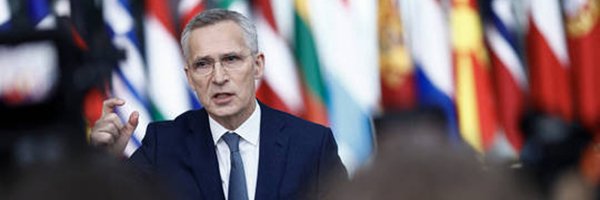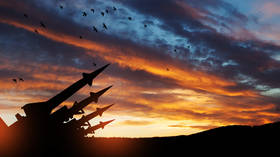Russia needs to explain its ‘red lines’ to the West
There is currently an intense debate in Western Europe about whether Ukraine should be allowed to attack Russian territory with NATO weapons. Some countries, such as the UK, France, Poland, and Finland, have already said they are in favor, while Germany, Italy, and the US have been opposed at the executive level, although the idea has supporters in parliaments and security agencies. NATO Secretary General Jens Stoltenberg has notably backed such plans.
The very formulation of the question is telling in itself – it reflects the peculiarity of the whole Ukraine conflict. What seems to be the problem? Countries that consider Kiev an ally (even if not formally, but de facto) support it against Moscow and provide weapons for combat operations. So what is the point of restrictions? Let them fight as Ukrainian military leaders see fit, don’t you think?
But the realities are such that Ukraine is not fighting on its own behalf, but at someone else’s behest. Without Western assistance of various kinds, it would have all ended long ago. This means that NATO is a necessary and indispensable part of the whole campaign, making it an active participant. The bloc recognizes the former, but not the latter. Hence the rather absurd conviction
that the supply and use of increasingly sophisticated weapons does not constitute an escalation of the conflict. Nor does it mean that NATO itself is being drawn into a confrontation with Russia.
Passions over the use of weapons are particularly high in Western Europe. The US tends to shy away from the controversy. The White House reiterates its previously stated position that American weapons cannot be used against targets within Russia’s internationally recognized borders (from the American point of view, this does not apply to the former Ukrainian territories, including Crimea). Whatever, to put it mildly, peculiar statesmen run the US, the self-awareness that as a nuclear superpower it could be involved in a full-blown atomic war still helps to concentrate minds. The Old World, on the other hand, has no such ballast. The dilemma Western Europeans face, or rather have created for themselves, is complex. They see Ukraine as key to peace on the continent. But not in the sense that it is necessary to find an option acceptable to all, including Russia, to resolve the impasse, but on the contrary – there can be no negotiations with Moscow, only a military victory over it.
The occasional sceptics who warn that Kiev will never be able to achieve its goals are unable to change the ideological mood. And this is down to the manner in which the conflict is interpreted in Western Europe. Ideological and emotional exaltations dominated at the beginning, but this mantra has become an official stance. Hence the opinion, offered as an axiom, that after Ukraine the Russian armada will naturally move on to crush all of Europe, starting with the east.
Never mind that US intelligence officials outline from time to time that they don’t consider such a scenario to be part of Russian strategic planning. Western Europe’s elites think they know President Vladimir Putin better than their American friends.
But if you start from such a false premise, then yes, there is no alternative but to support Ukraine in every possible way. And, of course, lift restrictions on the use of weapons. And possibly even send more specialists who know how to use them. And perhaps eventually send combat units from individual NATO member states directly to Ukraine.
There is an important point to be made here. Whether or not the Western European establishment genuinely believes that Russian tanks will roll across Europe is becoming less important with each round of escalation. The need to build a political narrative and look capable to one’s own electorate doesn’t allow for backtracking. And when French President Emmanuel Macron initially announced the possibility of sending a French contingent for the sake of a headline, as he is prone to do, it was impossible for him to go back on what he had said.
The same Macron, followed by members of his government, found an explanation for his own statements in the need to create an atmosphere of “strategic ambiguity.” Let the Russians fret over what we mean and be afraid. Such a technique is used in war gaming, but it usually implies or precedes a state of direct and very sharp confrontation. So the assumption that this can be avoided by such tactics is obviously wrong. That is why the US, which understands the level of responsibility better, is not particularly inclined to play this game now.
The story of the acute phase of the military conflict in Ukraine has seen a constant raising of the ceiling of the possible and lowering of the risk threshold by the West. If Western strategists had been told in the spring of 2022 what the extent of their involvement would be by the spring of 2024, they probably wouldn’t have believed it. But the course is linear, which means there is no reason to expect a different dynamic. In other words, everything that is first discussed as a hypothetical escalation will eventually become real. Both in terms of the use of weapons and deployment of troops.
What to do in such a situation? The time for strategic ambiguity is over, as is the increasingly ritualized talk of ‘red lines’. At the very least, Russia needs to be very clear about the steps it will take in response to NATO’s actions. Vagueness only encourages flip-flopping and fosters a sense of impunity.
*
Fyodor Lukyanov, the editor-in-chief of Russia in Global Affairs, chairman of the Presidium of the Council on Foreign and Defense Policy, and research director of the Valdai International Discussion Club.


